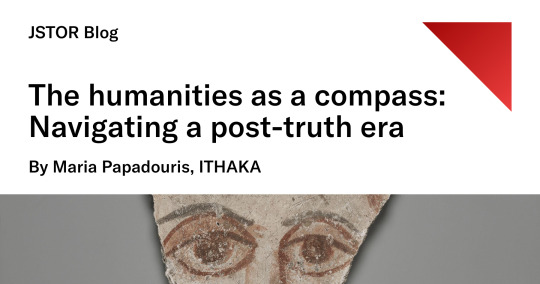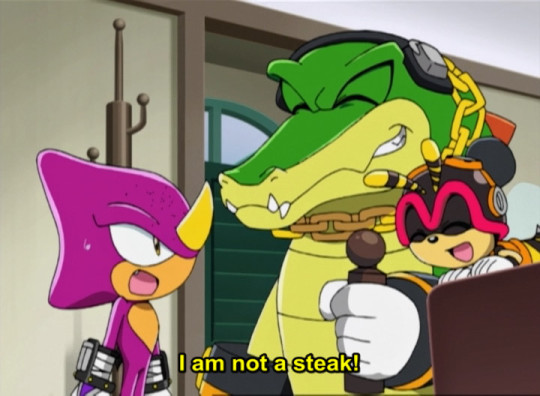#social truths
Explore tagged Tumblr posts
Text
"The demagogue is one who preaches doctrines he knows to be untrue to men he knows to be fools." Henry Louis Mencken.
#quote of the day#quote of today#henry louis mencken#demagogue#preaching#doctrines#knowledge#truth#truths#social truths#men#fools#challenges#ethics#politics#hear and listen#look and see#in the light of certain events#think about it
103 notes
·
View notes
Text

"The point is that Marxism and Anarchism are built up on entirely different principles, in spite of the fact that both come into the arena of the struggle under the flag of Socialism. The cornerstone of Anarchism is the individual, whose emancipation, according to its tenets, is the principal condition for the emancipation of the masses, the collective body. According to the tenets of Anarchism, the emancipation of the masses is impossible until the individual is emancipated. Accordingly, its slogan is: 'Everything for the individual.' The cornerstone of Marxism, however, is the masses, whose emancipation, according to its tenets, is the principal condition for the emancipation of the individual. That is to say, according to the tenets of Marxism, the emancipation of the individual is impossible until the masses are emancipated. Accordingly, its slogan is: 'Everything for the masses."
- J. V. Stalin, Anarchism or Socialism?
938 notes
·
View notes
Text

In a post-truth world, where emotional appeal sometimes drowns out factual accuracy, the humanities are our compass. They help us question the narratives we’re presented with, cultivate empathy, and dig deeper into the layers of truth behind media, politics, and culture.
By embracing literature, history, and the arts, we enhance our critical thinking and foster a connection to the human stories that shape our collective experience. 💭
Check out our latest blog post on how the humanities equip us to navigate the complexities of a world filled with conflicting truths.
#jstor#jstor blog#humanities#literature#history#the arts#social sciences#culture#politics#media#post-truth
1K notes
·
View notes
Text

It is unbelievable to think that ANY patriotic American would ever consider voting Democrat when the truth and depth of their corruption is being revealed to the World! Leftist brainrot personified
#politics#us politics#democrats are corrupt#democrats will destroy america#wake up democrats!!#government spending#government fraud#usaid#graft and corruption#political corruption#government corruption#the most corrupt administration ever#biden crime syndicate#hurricane relief#medicare fraud#social security number#social security fraud#department of education#national debt#democrats are traitorous#democrats are evil#democrats are hypocrites#democrats are stupid#make america great again#doge#america first#truth justice and the american way#Instagram
572 notes
·
View notes
Text










pt.23!! <pt.22 pt.24>
tags for the lads @andrewsleftarmband @blurryhour @you-know-i-get-itt @notexactlythatgirl @strangeoffputtingrat @tessasilverswan @minyard-05 @carbon-dated-gal @bisexualchaosdemon @stormiiflies @watercoloureyes01 @vampire-overlord @iron-sides @azure-wing @buffalo-fox @ohgodnotagainplease @pink-hydrangea @jaywalkerss @ohmynoggin-blog @cosmic-marauder @min-getoutofmy-yard @plazybones @disastersappho <3
#much andrew because i am#in an andrew mood. didnt get out of bed except to shoplift then ate a whole tub of ice cream#court eunuch kevin day truthing#aftg socmed au#aftg#kevin day#neil josten#andrew minyard#seth gordon#renee walker#aaron minyard#dan wilds#allison reynolds#matt boyd#nicky hemmick#aftg social media au
701 notes
·
View notes
Text
It’s ALL a BIG scam! 🤔
#pay attention#educate yourselves#educate yourself#reeducate yourselves#knowledge is power#reeducate yourself#think about it#think for yourselves#think for yourself#do your homework#do your own research#do your research#do some research#ask yourself questions#question everything#government corruption#rogue government#government secrets#government waste#truth be told#lies exposed#evil lives here#news#social security#government lies#crimes against humanity#treason#money laundering
437 notes
·
View notes
Text

(Source)
#destiel#donald trump#truth social#american politics#us politics#castiel#dean winchester#breaking news#we fought a whole war about this one
318 notes
·
View notes
Text

source
#destiel meme#destiel meme news#united states#us news#news#joe biden#biden campaign#biden harris 2024#truth social#x twitter#twitter x#x formerly known as twitter#president biden#biden administration#fuck trump
2K notes
·
View notes
Text













Espio has had enough of these two.
#sth#espio the chameleon#charmy bee#vector the crocodile#team chaotix#informative espio post#sonic x#screenshots#dialogue#i think there's a couple more i could find but you get the point#never married and already divorced#no one can handle the truth#you would not BELIEVE#how much TIME it can take to compile all these images#just sitting around wracking my brain trying to remember all the exact moments... and then COLLECTING those moments myself#sometimes i'm surprised i do this#the curating is the hardest part#someone be my social media manager#i'm so happy i was insane months ago so this was entirely scouting through my screenshot folder for the most part
224 notes
·
View notes
Text

#trump#donald trump#democrats#president trump#kamala harris#james woods#career#college#university#diversity#equity#equities#inclusion#affirmative action#racisim#transgender#trans pride#lgbtq#jobs#jobsearch#competition#meritocracy#socialism#communist#lobbyists#antifascist#antifascismo#anti capitalism#truth#skilldevelopment
307 notes
·
View notes
Text


I can go without SEX.. But that Damn The Social Network (2010) a whole different story 🤷😂💯
originals :b


#the social network#tsn#mark zuckerberg#← the gay one from the movie#jesse eisenberg#markwardo#fanart#my art#sorry social networkers its been a while ..#the truth is i just find jesse eisenberg and andrew garfield impossible to draw for some reason#specifically them too .. its like im cursed 💔 actually sick and twisted
592 notes
·
View notes
Text

The economy is tanking and this mofo is over on his failing social media platform hyping his D-list reality show reruns on Amazon Prime.
223 notes
·
View notes
Text
America needs MAX PARTICIPATION for the economic blackout this Friday. This thing is snowballing fast because so many reasons are popping up for why people are doing it (including some "what it's really about" lists). A short list:
-inflation/the egg thing
-protesting the trend of corporations getting bigger and richer and more powerful while normal people are finding it harder and harder to keep up with the cost of living
-protesting corporations who heard Trump say diversity is out and went "Oh thank God" and immediately dropped (sorry, "didn't renew") their DEI policies, their support for the LGBTQ+ community, all of it
-protesting consumerism/huge corporations in general
-Trump giving a giant chainsaw of power to Musk and they are literally having fun with it
-the giant, reckless cuts Trump is making in general
-Jon Schwarz started a grassroots movement for government accountability and corporate reform and is going to make a million bucks this week selling Tshirts of his Blackout Tour
-moderate Republicans, Trump leavers, and even Trump supporters are starting to realize that Trump needs reining in from every angle possible because wow.
IT DOESN'T MATTER, at least not on Friday. The point is that the energy this has gathered is part of a wider pool of protests, boycotts, spending freezes, etc. that are gathering steam fast. And that's a good thing, because this Friday, Feb 28th, has become a productive, nonviolent flashpoint. There is so much anger and fear building right now in America and this is a good, healthy way for it to emerge. But if participation is too spotty, it will lead to absolutely nothing.
So please, less gatekeeping and more welcoming. Honestly, for the sake of max participation, if even one of these reasons matter to you, or matters to people that you care about, please participate.
Tl;dr: What is Friday really about? It's about momentum. Please, participate.
#Economic blackout#Feb. 28#Boycott#Spending freeze#I just learned about the Latino spending freeze and something about Al Sharpton this morning?#i think a lot of us are just hurrying to understand it all by Friday but that's missing the point#just participate and people can argue later#MODERATE REPUBLICANS WE NEED YOU ON THIS ONE#Leaving MAGA#U.S. Politics#Independent voters#anti consumerism#Monopoly#Cost of living#Project 2025#People's Union USA#Truth social#Literally every American please participate we'll sort it out later!#(to the extent that you are able)#Non-Americans pls boost at least once about Friday thank you!#And please participate if that is relevant to your spending habits/location!
274 notes
·
View notes
Text
reminder that making time for your friends, even when you're tried and socialising feels overwhelming is important to do every so often. it's especially important to do this actually.
time alone can be good, for a time, but humans are social creatures and we need to talk to people, there's nothing wrong with that!!
sometimes the more time you spend alone the more your brain will tell you to stay alone. that's not true, you're allowed to (and should!!) see people that are important to you. sometimes that alone can be surprisingly healing.
#hello again!!#ive been in a bit of a SLUMP and started isolating myself but i just visited a friend and saw a show they worked on#and then stopped at a cute little coffee shop on the way home and seeing people being kind to each other and my best friend#was exactly what i needed!! truth be told i secretly hoped this trip would get cancelled somehow but im so so glad it didn't!#feeling very much in love with the world again <333#reminders#social anxiety#love letters to you
1K notes
·
View notes
Text
"Imagine taking the few Bible verses on women being silent in church and human sexuality as literal divine commands from God for all society, but minimizing the +2000 verses calling for a generous economy and redistribution of wealth for the sake of the poor to a personal choice." - Reverend Benjamin Cremer (Indeed a veeery selective approach to the scriptures...)
#quote of the day#quote of today#reverend benjamin cremer#imagine#bible verses#women#women's issues#silence#church#human#sexuality#divine commands#laws#the commandments#economy#equity#equality#justice#social justice#distribution of wealth#the poor#choices#personal choice#convictions#decisions#personal convictions#the truth be told#think about it
127 notes
·
View notes
